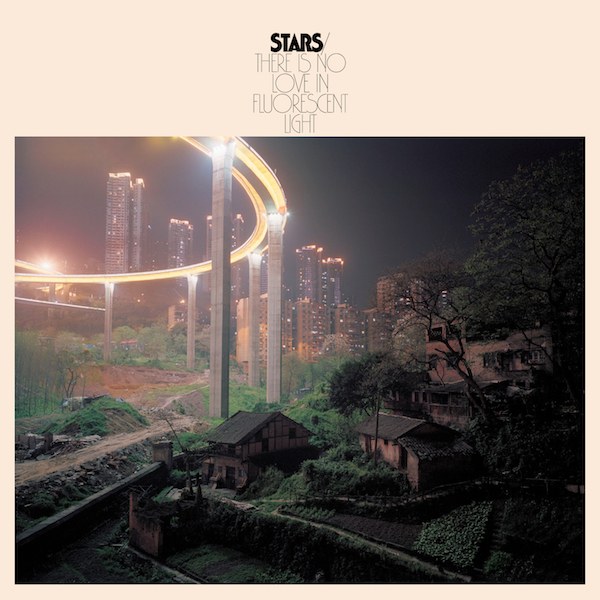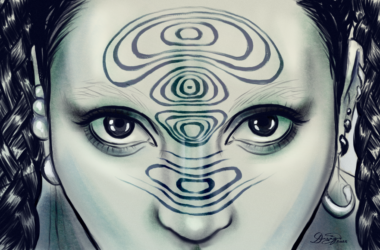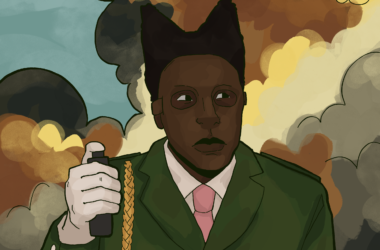Since the release of their first album Nightsongs in 2001, Canadian indie pop band Stars has centred its songwriting around strained love. Usually holding on by a thread, though interspersed with spells of enamoured enchantment and thrill, the band’s lyrics stare out on the brink of darkness, loneliness, and death. Lead singers Torquil Campbell and Amy Millan’s dual vocals and narratives often cast two characters trying to either understand or get over one another, as lonely, lovestruck figures so often do. While the five-person band’s instrumentals are always solid—the grit of the electric guitar in contrast with Millan’s soft, yearning voice forms album highlight, “Privilege”—the complementary, hypnotic vocals and haunting lyrics are what continue to make Stars so mesmerizing.
Released on Oct. 13, Stars’ latest album, There Is No Love In Fluorescent Light, plays off their melodic, conversational style. As Stars have matured, their focus has shifted away from captivating morbid fantasies, like older tracks “Calendar Girl,” “Dead Hearts,” and “I Died So I Could Haunt You,” to a more reflexive, nostalgic, and melancholic-yet-serene state.
“We Called It Love” epitomizes Stars’ signature duet style. Two ex-lovers reminisce about a failed yet inescapable past relationship from their respective—yet ironically similar—points of view. “I don’t suppose you remember me / I was the one who set you free,” sings Campbell to an ex. “We used to call it something / we called it love,” agree the two in pensive unison, simultaneously on the same page and talking past one another.
Conversely, “Fluorescent Light” is an upbeat attempt to rejuvenate a comfortable but fizzling relationship. Campbell’s persona is one of slight resignation and denial, while Millan’s attempts to spark the adventure that has been lost amid routines of daily monotony.
Some songs—such as “California, I Love that Name” and “Alone”—are a bit repetitive and lacking in depth. However, their content fits nostalgic threads to the album: “California, I Love That Name” longs for a time and place without worries and obligations—a kind of utopia “free from the past, and free from the pain.”
Stars continue to tackle familiar fears of desertion in songs like “Losing To You.” “On The Hills” exists in a dreamlike trance of loss and disbelief, with fuzzy, faraway, high-pitched vocals: “Could it be it was only a dream?,” asks Millan. Similarly, in “Hope Avenue”—a song with beats that seem to echo New Order, one of the band’s inspirations—the past mars the present, as memories continue to hold people back.
In the end, as the final track’s title indicates, we are all just “Wanderers.” Although not the most exciting melody, it sums up the album’s ephemerality and closes it on a note that is neither here nor there. Just as the opening number “Privilege” chides, you “Never got what you want / you forgot what you want.” It’s a story of two protagonists haunted and torn by roots of a shared past that both soothes and torments, which they can neither let go nor return to.








